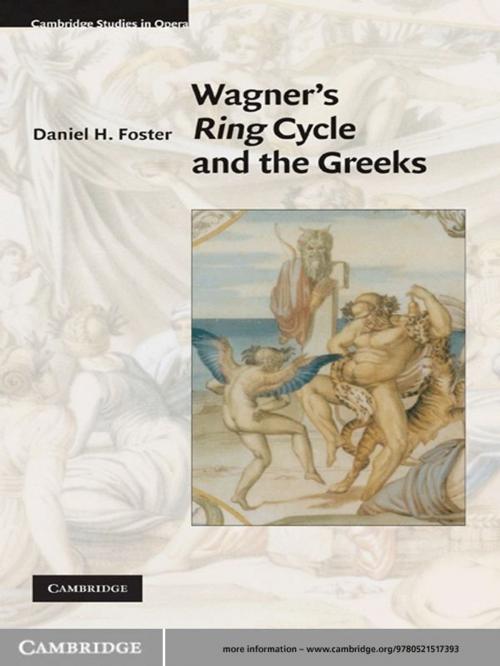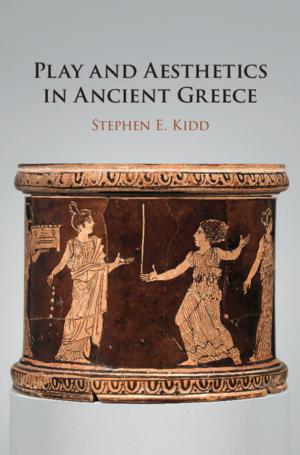Wagner's Ring Cycle and the Greeks
Nonfiction, Entertainment, Music, Music Styles, Classical & Opera, Opera| Author: | Daniel H. Foster | ISBN: | 9780511739514 |
| Publisher: | Cambridge University Press | Publication: | February 4, 2010 |
| Imprint: | Cambridge University Press | Language: | English |
| Author: | Daniel H. Foster |
| ISBN: | 9780511739514 |
| Publisher: | Cambridge University Press |
| Publication: | February 4, 2010 |
| Imprint: | Cambridge University Press |
| Language: | English |
Through his reading of primary and secondary classical sources, as well as his theoretical writings, Richard Wagner developed a Hegelian-inspired theory linking the evolution of classical Greek politics and poetry. This book demonstrates how, by turning theory into practice, Wagner used this evolutionary paradigm to shape the music and the libretto of the Ring cycle. Foster describes how each of the Ring's operas represents a particular phase of Greek poetic and political development: Das Rheingold and Die Walküre create epic national identity in its earlier and later stages respectively; Siegfried expresses lyric personal identity; and Götterdämmerung destructively culminates with a tragi-comedy about civic identity. This study sees the Greeks through the lens of those scholars whose work influenced Wagner most, focusing on epic, lyric, and comedy, as well as Greek tragedy. Most significantly, the book interrogates the ways in which Wagner uses Greek aesthetics to further his own ideological goals.
Through his reading of primary and secondary classical sources, as well as his theoretical writings, Richard Wagner developed a Hegelian-inspired theory linking the evolution of classical Greek politics and poetry. This book demonstrates how, by turning theory into practice, Wagner used this evolutionary paradigm to shape the music and the libretto of the Ring cycle. Foster describes how each of the Ring's operas represents a particular phase of Greek poetic and political development: Das Rheingold and Die Walküre create epic national identity in its earlier and later stages respectively; Siegfried expresses lyric personal identity; and Götterdämmerung destructively culminates with a tragi-comedy about civic identity. This study sees the Greeks through the lens of those scholars whose work influenced Wagner most, focusing on epic, lyric, and comedy, as well as Greek tragedy. Most significantly, the book interrogates the ways in which Wagner uses Greek aesthetics to further his own ideological goals.















